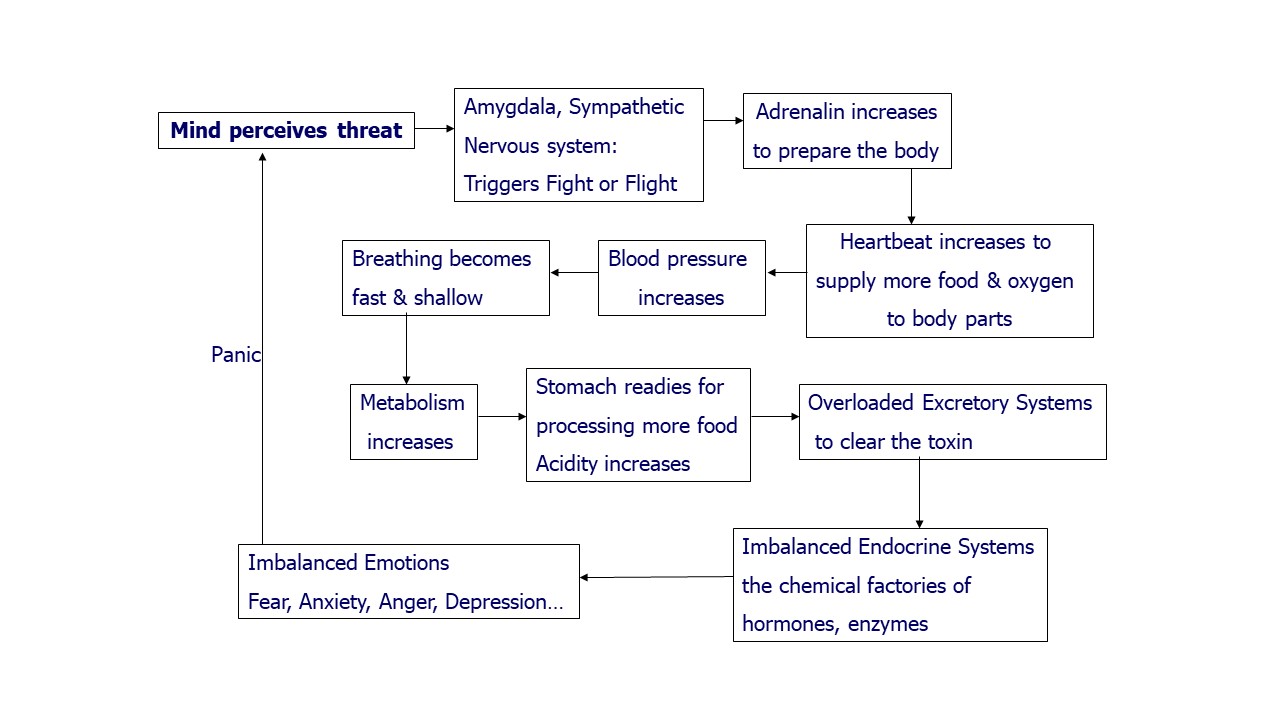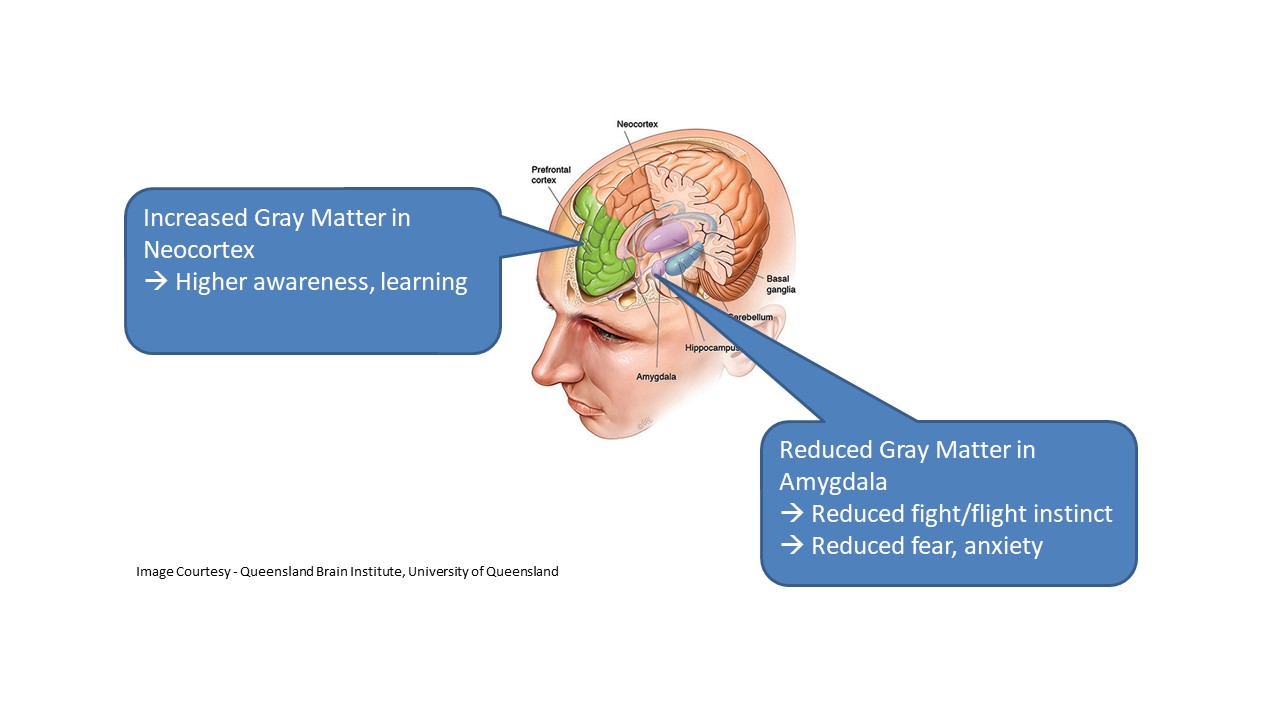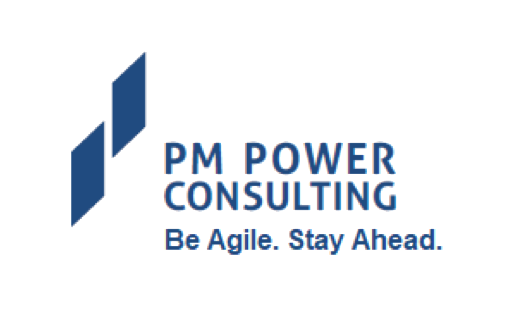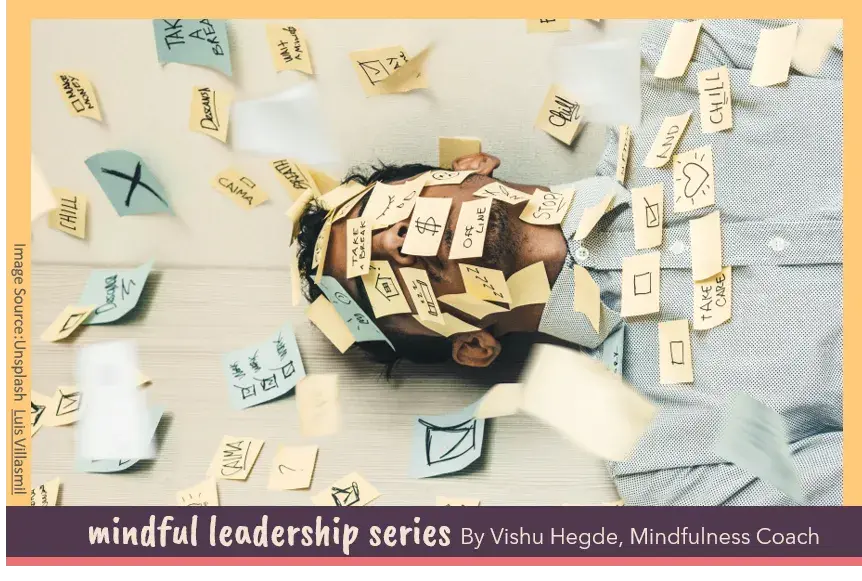A search on Google on ‘Stress’ throws up more than 100 million results! It has become all pervasive in the world. Children to adults to aged, men & women, rich or poor, almost everybody is undergoing stress. Especially in the VUCA (volatile, uncertain, complex, ambiguous) world, like the pandemic-hit world, it has aggravated even more.
But, have we thought about what is stress? Why stress happens? Can we prevent it or how can we deal with it, even if it happens?
Stress is essentially too many thoughts in the head. What triggers those thoughts? – typically fear, insecurity, worries, negative emotions. If we go one more step deeper, we can notice that the root cause for this is when people and situations are not as per our expectation.
Observe this: Suppose someone gives us 10 compliments and makes one small negative remark. What stays in our mind? – the small negative remark, right? Why? We accept those 10 compliments readily; but we are not accepting that one small negative comment. What we resist, persists in our mind; what we accept, dissolves. If we can accept people and situations as they are, 50% of the stress will reduce. (This doesn’t mean we become submissive; it’s about recognizing this fact, which liberates us to think & act the next steps rather than bind us in the resist-persist loop).
Another scenario to observe: If we like something, we don’t feel tired/stressed even if it’s difficult and requires us to put in long hours. On the other hand, if we don’t like something (not accepting, having resistance in the mind), even if it’s a small job, it becomes a huge uphill task. Isn’t it?
Still not ready to accept? Then it’s worthwhile to understand the damage we cause to ourselves by stress.
It all starts with the mind – mind says ‘this is a problem’; mind perceives threat. In our day-to-day life, it’s not so much about existential threat, but it’s more about identity threat – worry/fear of losing or not getting something which we perceive as important – money, job, status, relationship, health, security, etc. – the Maslow’s hierarchy of needs. Then if we follow the chain reaction in the below diagram, we can notice that it impacts almost every organ/function of the body – the brain, heart, blood pressure, respiratory system, stomach, kidney, endocrine glands etc.

When endocrine system is impacted, the hormones get imbalanced which create distorted emotions, which in turn further alter the perception of the mind. This becomes a negative spiral – a small problem grows bigger & bigger.
So, how to prevent stress? Here are some tips which I found useful:
- Become aware: Fear, anxiety, worry etc. are false projections of the mind because of the negative spiral of body-mind interplay. Have you noticed that some situation in your life in the past which looked like a big problem at that time, looks like ‘it was not such a big issue after all’ now? – problems look much bigger when they are in front of us, because of the false projection by mind-body interplay. If we become aware of this, we can break the negative cycle consciously and prevent false magnification of the issue and deal with it in a more balanced way. This reduces stress.
- Be calm: We saw that mind is the root cause; If the mind is calm, the rest of the chain reaction does not get triggered. But that’s easier said than done, because just telling the mind to be calm does not work. There are some simple but effective techniques:
- Breathwatch: This is a simple but powerful technique to de-clutch the mind from the negative spiral. Here is an audio guided practice. You can do this anytime, anywhere especially whenever you notice that you are getting into any negative emotion or if you are getting into difficult conversations, presentations etc.
- Balanced Breathing: You can watch an audio/video guided practice here. This is a powerful tool to cultivate a balanced, calm mind.
- Body Scan: This is a great technique to switch off all the thoughts and go to deep sleep. High quality sleep is a great stress buster. Here is an audio guided practice.
- Accept: As discussed earlier, if we accept people and situations as they are, agitated mind settles down which liberates us towards positive and constructive thoughts, feelings, actions.
- Build resilience: In spite of all such practices, we are bound to get into stressful situations. It’s important to build resilient body-mind-energy system so that under such circumstances our system does not react adversely. Healthy lifestyle, food habits, exercises, yoga, pranayama (breathing techniques), mediation, …. all of them help.
Neuroscience research shows that daily practice of such techniques brings about a transformation in our brain, nervous system, endocrine system and more, making us a calm, composed and balanced person rather than stress-sensitive person. For example, they reduce the gray matter in Amygdala, the fight or flight reptilian brain and increases gray matter in Neocortex, which is a higher awareness brain – thus making us naturally a less reacting and more responding person.

Image Courtesy: Wikipedia
Research also shows that such practices reduce the stress inducing hormones (like Adrenalin, Cortisol, …) and increase calm/pleasantness hormones (like Oxytocin, Dopamine, …). (Of course, we need hormones like Adrenalin, Cortisol for certain drive/action, especially for emergency responses, but they should not become dysfunctional). Thus, whatever stage we may be in, we can become a better version of ourselves.
How do all these relate to Leadership? Beyond IQ & EQ, Leaders need to have AQ as well – Adversity Quotient – what choices & decisions one makes at times of difficulty/adversity. This requires MQ – Mindfulness Quotient – calm & balanced choices & decisions.
If we look at a larger picture, Stress is a much bigger global pandemic than COVID-19. It’s not caused by external invasion of bacteria or virus; it’s caused by improper living conditions created by human beings. Now it’s known that more than 80% of the diseases are psychosomatic – caused by the mind. Stress is also the cause for many social unrests and conflicts.
Doesn’t it make sense to prevent stress? If we prevent stress within us, we also reduce stress in people around us – family, work, social contexts. If everybody prevents stress, we can create healthy, happy neighborhoods all over the world. Isn’t it a great service?
Not just points to ponder, but points to practice.
Here is an invitation for you to explore, experiment and experience with some of the Mindfulness practices
Stay tuned for more in Mindful Leadership series
You can download a free eBook on Mindfulness@Work here.
You can practice audio/video guided Mindfulness techniques here.
You can get more info on Mindful Leadership here.
If you are curious & adventurous and want to explore & experiment deeper, watch the following videos in that order:
- Managing Self with Mindfulness@WFH : Managing Self
- Holistic Mindfulness – Body, Mind, Energy Integrated Approach: Holistic Mindfulness
- Beyond Mindfulness – No Mind : Beyond Mindfulness




